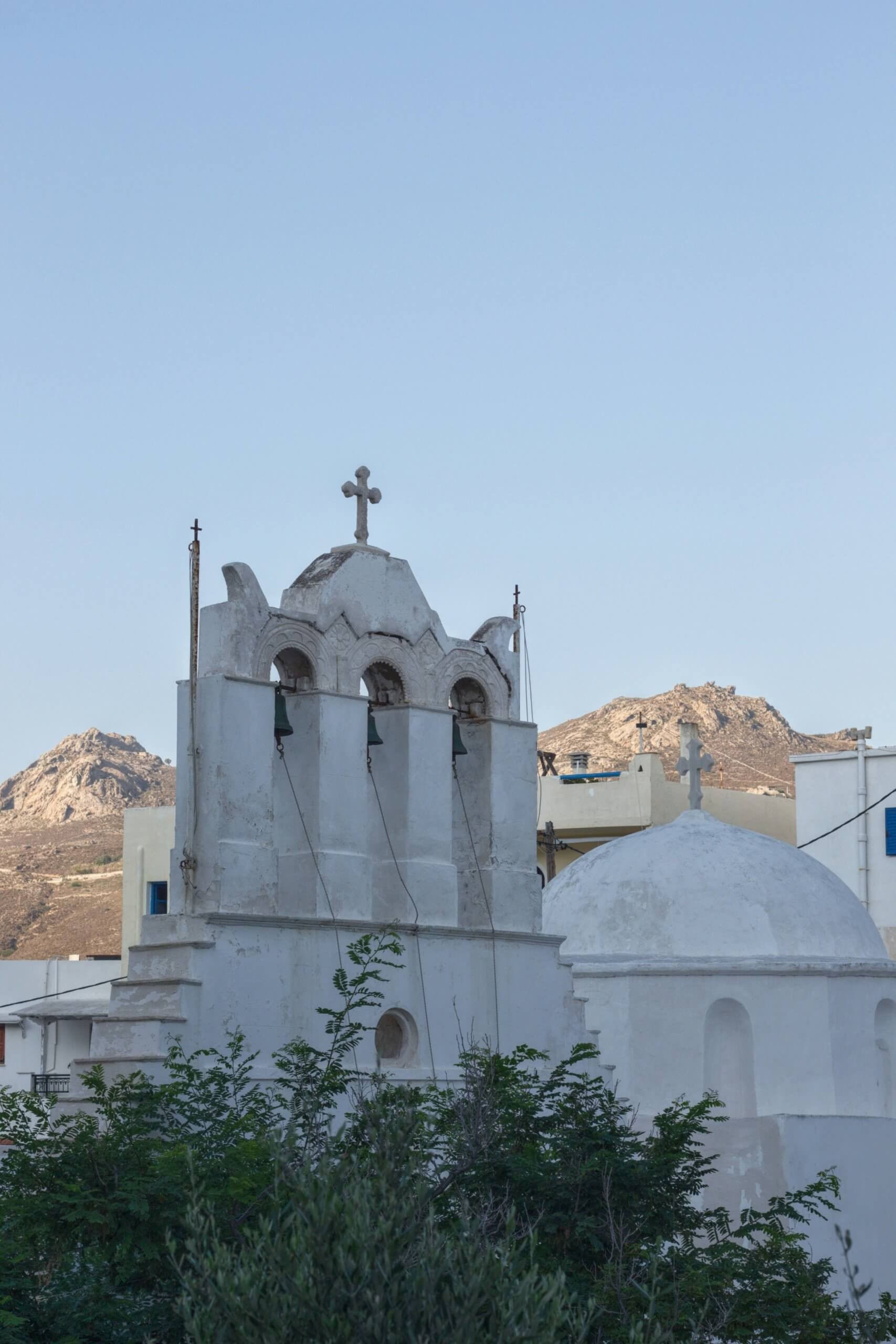Nestled in the heart of the Cyclades, Naxos stands as a timeless sentinel of Greek culture and history. This island, the largest in the Cyclades, is a place where history intertwines seamlessly with tradition, creating a vibrant tapestry that enchants visitors year after year.
A History Carved in Stone
Naxos’s history stretches back to the dawn of Greek civilization. The island is famously associated with Dionysus, the god of wine, who, according to mythology, found refuge here and blessed the land with fertile vineyards. This mythic connection to Dionysus is still evident in the island’s viticulture, with the local wine carrying the essence of this divine legacy.
The island’s archaeological heritage is vast. The Portara, an iconic marble gateway on the islet of Palatia, stands as a proud reminder of Naxos’s ancient grandeur. Nearby, the Temple of Demeter in Sangri reflects the island’s rich religious and cultural past, showcasing the sophisticated artistry and devotion of its ancient inhabitants.
Byzantine and Venetian Influences
As centuries passed, Naxos became a crossroads of cultures. The Byzantine era left its mark with an array of churches and monasteries, many adorned with exquisite frescoes. The Panagia Drosiani church, one of the oldest in the Balkans, is a testament to the island’s early Christian heritage. Its ancient frescoes provide a window into the spiritual life of the past.
Traditions Alive in Every Corner
Naxos is a living museum where traditions have been preserved with remarkable care. The island’s people are proud of their customs, and throughout the year, a variety of festivals and events celebrate Naxian culture. Easter in Naxos is another profound experience. The island’s churches and monasteries play a central role in the celebrations, with processions, feasts, and rituals that date back centuries. The faithful partake in solemn observances during Holy Week, culminating in a joyous celebration of the Resurrection.
Crafts and Culinary Delights
The traditions of Naxos also manifest in its artisanal crafts and culinary practices. The island is famous for its marble, and local artisans have been carving intricate sculptures and monuments from it for millennia. Naxos’s cheeses, particularly graviera, are a must-try, reflecting the island’s agricultural wealth and the skill of its farmers. The traditional dish, “patoudo,” a lamb stuffed with rice and herbs, is a culinary embodiment of Naxian hospitality.
Naxos is more than just a beautiful island; it is a place where history and tradition are deeply interwoven into the daily lives of its people. From the ancient ruins that dot the landscape to the vibrant customs that continue to thrive, Naxos offers visitors a chance to step back in time and experience the living history of the Cyclades.

